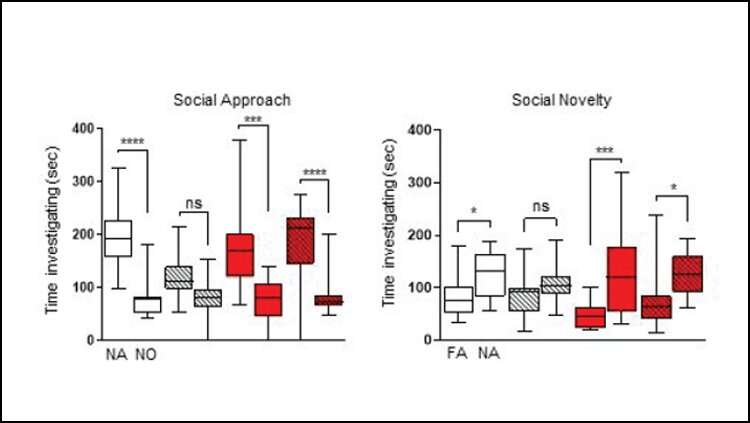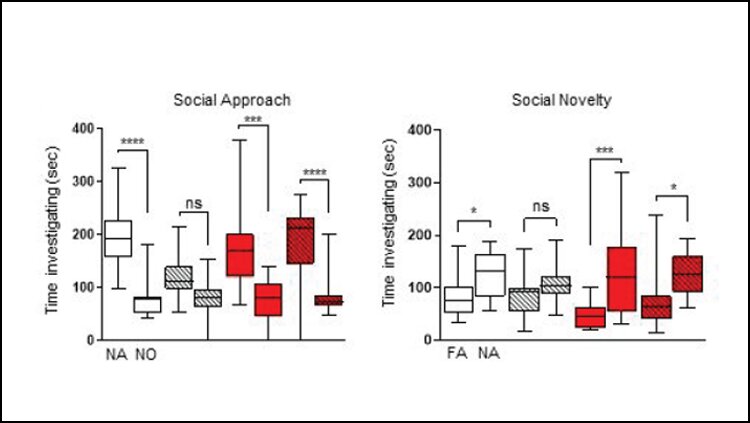
Timing is key when treating developmental disorders. Blocking an overactive signaling pathway during the first five weeks of life prevents autism symptoms from ever developing in mice, according to new research published in JNeurosci.
The brain develops capabilities, like language, during specific spans of time called critical periods. The symptoms of disorders like autism arise during a set critical period; administering a targeted intervention only during the critical period could prevent the disorder from ever taking shape without the burden of a life-long treatment.
Gibson et al. compared intervention timing in a genetic mouse model of Tuberous Sclerosis Complex (TSC), a neurodevelopmental disorder with high rates of autism spectrum disorder. The research team administered the drug rapamycin to inhibit mTOR signaling, a pathway that is overactive in people and animals with TSC. After four weeks of treatment starting at one week of life, mutant mice displayed normal social behaviors and normal activity in cerebellar Purkinje neurons, even after four weeks without treatment.
Source: Read Full Article
